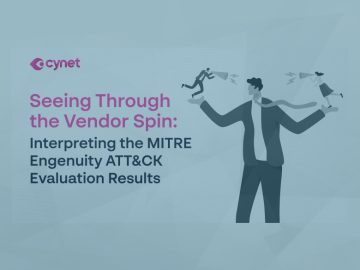In an era where cyber threats loom larger than ever, businesses are increasingly relying on cyber insurance as a critical component of their risk management strategy. Indeed, the Netwrix 2024 Hybrid Security Trends Report found that 62% of organizations either have such a policy or plan to purchase one within the next 12 months.
However, to obtain and maintain a comprehensive cyber insurance policy, organizations must demonstrate adherence to stringent cybersecurity protocols. In the Netwrix survey, 18% of respondents said they had to make changes to their security strategy to reduce their premium — and 30% had to make improvements to their security posture to even be eligible for cybersecurity insurance at all.
Privileged Access Management (PAM) solutions are a pivotal technology in this context. In fact, 42% of organizations reported that they had to have PAM in place in order to obtain their cyber insurance policy, up from 36% in 2023.
Mitigating Insider Threats
Insider threats pose a significant risk to data security. The frequency and financial impact of insider-related incidents keep increasing, averaging an annual cost of $15.38 million, according to the 2022 Cost of Insider Threats Report by Ponemon Institute.
Accordingly, insider threat protection is a key element in cyber insurance risk assessments. PAM directly reduces this aspect of an organization’s risk profile by enforcing strict access controls and providing close surveillance of privileged accounts, thereby making it more favorable in the eyes of insurers.
Facilitating Regulatory Compliance and Alignment with Cybersecurity Frameworks
Cyber insurance providers frequently mandate proof of adherence to regulatory standards like GDPR, HIPAA, and PCI DSS. These regulations demand rigorous management of access to sensitive information — an area where PAM solutions excel.
Moreover, integrating PAM into security protocols helps organizations align with cybersecurity frameworks like NIST CSF and COBIT. Insurers often view such alignment as a testament to an organization’s commitment to cybersecurity because these frameworks provide best practices and key benchmarks for mitigating risk.
PAM solutions are crucial in aligning with the NIST cybersecurity framework. In this case, such solutions help organizations:
- Identify and protect critical assets: PAM solutions identify privileged accounts and provide robust protections to secure them.
- Detect anomalous activity: Through continuous monitoring and logging of privileged account activity, PAM aids in the early detection of potential security breaches.
- Respond promptly to incidents: PAM enables organizations to quickly restrict access to compromised accounts.
Transport and logistics service provider H. Essers provides a real-life example of how PAM assists in aligning with NIST. The company had achieved ISO 27001 certification, but they also needed to comply with the NIST framework to meet cyber insurance requirements. Netwrix Privilege Secure, a comprehensive PAM solution, enabled them to gain the strong control and monitoring they needed over vendor and contractor access to company systems through capabilities like multifactor authentication (MFA) for admin sessions and improved password management — which enabled them to secure the renewal of their cyber insurance. Plus, the solution also fulfilled their requirements for ease of use, scalability, and agility to adapt to changing cyber insurance demands. Indeed, the solution enabled the company to “avoid large-scale consultancy costs and shorten the setup process to a single day, compared to the several weeks required by other products,” according to Ivar Indekeu, Senior Manager of IT Operations for H. Essers.
Demonstrating Proactive Security Measures
Cyber insurers today require organizations to proactively safeguard their IT ecosystems. Forrester Research estimates that 80% of security breaches involve privileged credentials, including certificates, keys, passwords and tokens. Dedicated PAM tools can dramatically reduce the chance of security breaches related to privileged access. The resulting overall breach reduction likelihood translates into lower risk profiles for insurance purposes. This potentially leads to more favorable insurance premiums and terms.
Conclusion
As cyber threats evolve, so does the importance of cyber insurance in an organization’s risk management strategy. However, securing advantageous cyber insurance terms requires more than just basic security measures. Implementing a robust PAM solution plays a strategic role in enhancing an organization’s security posture, ensuring regulatory and NIST framework compliance, and ultimately fulfilling cyber insurance requirements. All in all, PAM is not just a fundamental security tool but a strategic asset in navigating the complexities of cyber insurance procurement and maintenance.
About the Author
An accomplished VP of Product Strategy at Netwrix with a 30-year track record of success from startups to enterprise software organizations, Martin Cannard is specifically experienced in the privileged access management and identity and access management areas. Leveraging his years in the privilege space, Martin has taken a visionary approach to attack surface reduction to redefine an established PAM market with Netwrix’s next-generation zero standing privilege solution. Martin is a seasoned speaker who regularly participates in global technological events and webinars.
Martin Cannard can be reached at [email protected] (not for publication), LinkedIn: https://www.linkedin.com/in/martincannard/ and at https://www.netwrix.com/



